22 Students Who Will Change the Way You Think of College Women
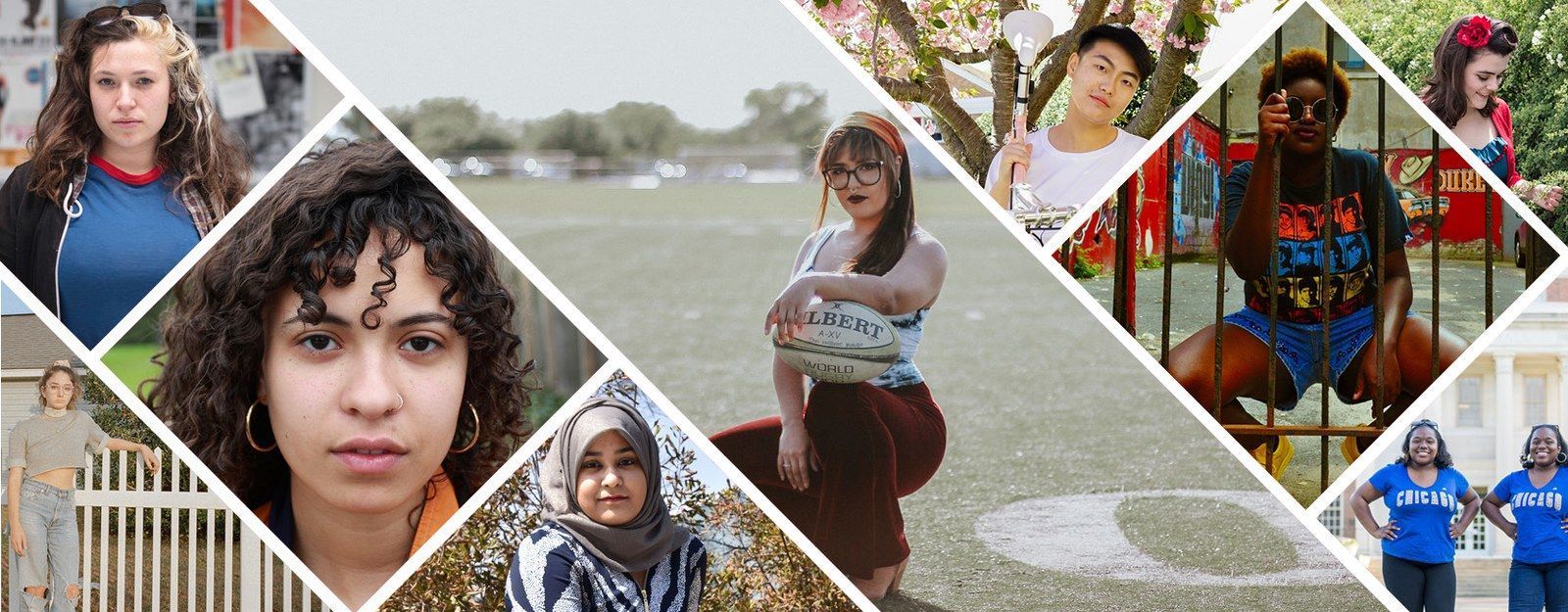
In late spring, we started work on a feature that had a simple premise—to get a true, immersive snapshot of what it’s like to be a young woman in America right now. We reached out to student photographers at 22 colleges across the country—from Abilene Christian University to New York University—and asked them to take a portrait of other women on campus who inspire them. We then interviewed the subjects. The results were extraordinary.
Forget everything you think you know about what it’s like to be a young woman right now. These young women are grappling with complex issues around race, sexual identity, and campus safety in Trump’s America—and they’re doing it with a level of self-awareness and compassion that is seriously impressive.
A lot has happened in the months we’ve spent talking to these women, from debates over climate change and health care to the violence in Charlottesville, and these voices feel more relevant to the cultural conversation than ever. Their perspectives are clear, strong, and transcendent. As one student proudly told us, “I want to tell the world that I’ve always been the girl I am; now the only real difference is I’m fearless enough to show it.” — Laurel Pinson
For more inspiring college women, check out Glamour‘s College Women of the Year—and learn more about the 2018 competition!
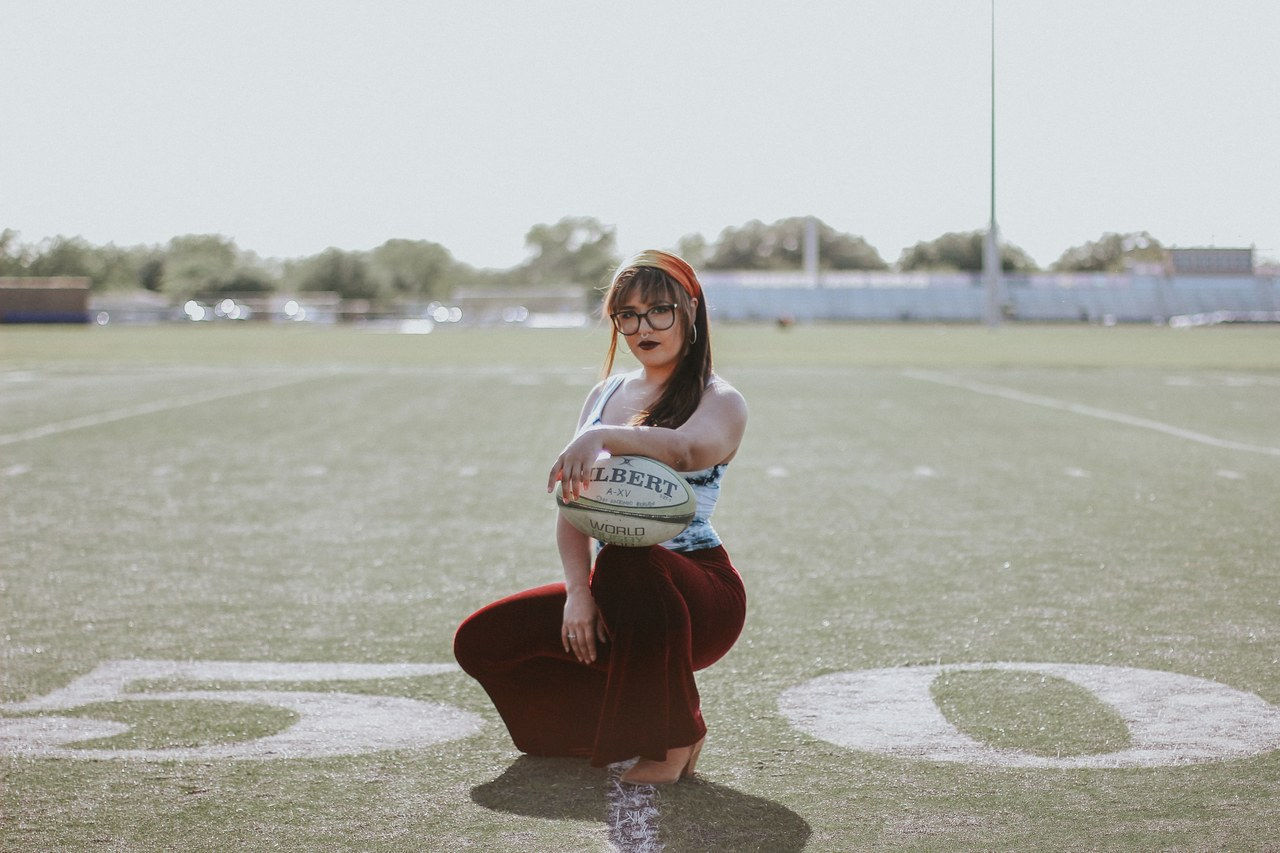
Alex Soto, 19
Sophomore at Abilene Christian University, Abilene, Texas; interior design major
I’m from San Antonio, about four hours away from my school. I play rugby here, and there was no women’s team [when I started]—the men’s team told me I was welcome to be a part of their family and compete. It’s a tough sport, and I amped up a million times by playing with the men. I wanted to share this passion with other women, and I’ve successfully recruited up to 11 girls and counting, and have competed against the biggest teams in Texas at multiple tournaments.
“The world simplifies college women and assumes all thechanges we go through are some stunt for attentionbecause we don’t know who we are yet.”
Going to a Christian university, it’s not hard to meet people with extreme religious views who shun those who express their individuality. One day I wore these beautiful red velvet bell bottoms that I hunted for everywhere, khaki heels, a white-and-navy-printed tank, a tricolor headband, and hoops. I wish I had a camera crew shadowing me so I can stress just how many people stared, laughed at me, and tapped their friends to point them in my direction. I got so many double takes for simply wearing a particular style that stood out. But I didn’t stop wearing my clothes; I didn’t take alternate routes to avoid people.
The world simplifies college women and assumes all the changes we go through are some stunt for attention because we don’t know who we are yet. In high school, we’re often surrounded by closed-mindedness; college is our first real shot to express ourselves. I want to tell the world that I’ve always been the girl I am; now my only real difference is I’m fearless enough to show it.— as told to Jessica Militare
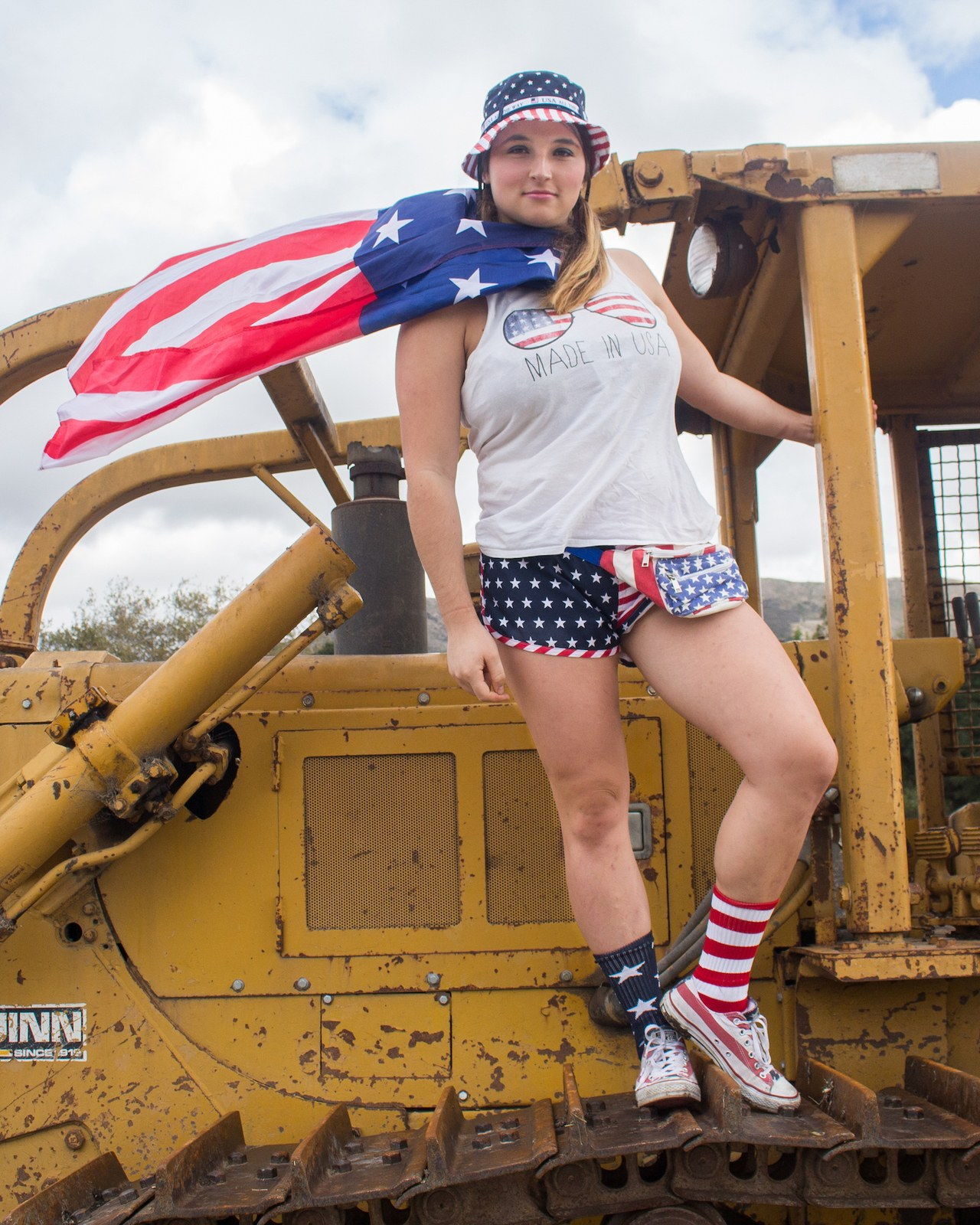
Emily Barbero, 19
Junior at California Polytechnic State University, San Luis Obispo, California; mathematics major
I’m in the CalPoly Tractor Pull club. We travel around the state and students build these modified tractors that drag metal. It’s a competitive distance sport, and I’ve met so many great people—I’d never even heard of tractor pulling before. I hang out with the tractor-pulling club, but I’m also a math major and I have friends that are English majors—it’s exciting to hang out with different groups of people. In high school I felt much more secluded.
College women still have loose stereotypes attached to them. They’re either the raging party girl or the studious library geek who never goes out. We can be both; there’s a middle ground between the extremes. I’m a math major, and whenever I tell people that, they’re like “What, really?” And then they’re like, “Oh, so you want to teach.” Where for men they’re like, “Oh, so you’re trying to go into engineering.’ People assume that college women can’t play the same roles as college men.— as told to Jessica Militare
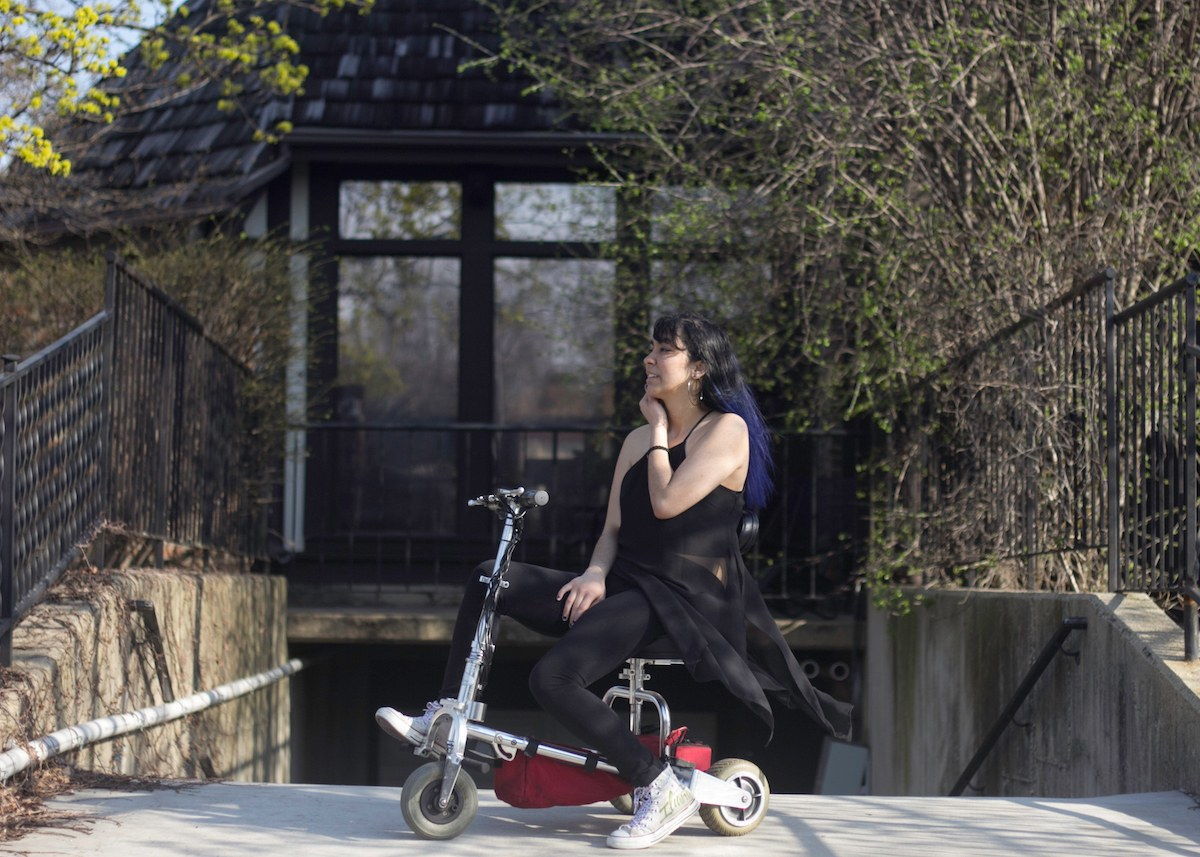
Ilana Rivera, 22
Senior at Wheaton College, Wheaton, Illinois; Psychology major
It’s hard to feel powerful in a predominantly white Evangelical university as a woman of color. After the election, I was terrified for what health care would look like for people who are differently abled like myself. But I’ve protested, and I’m trying my hardest to do what I can and to tell myself that I am powerful and that my voice matters.
“There’s a misconception that people with disabilities can’t pursuehigher education, and that’s completely wrong.”
There’s a misconception that people with disabilities—either with mental or physical limitations—can’t pursue higher education, and that’s completely wrong. I [have myasthenia gravis and] almost have my bachelor’s degree. It took a little bit longer, but people with disabilities are still capable, and we can do things just as well as anybody else can. Maybe [they’re] different things, and maybe we need a little bit of assistance, but it doesn’t lessen our value and it doesn’t lessen my value in society.— as told to Kate Friedman
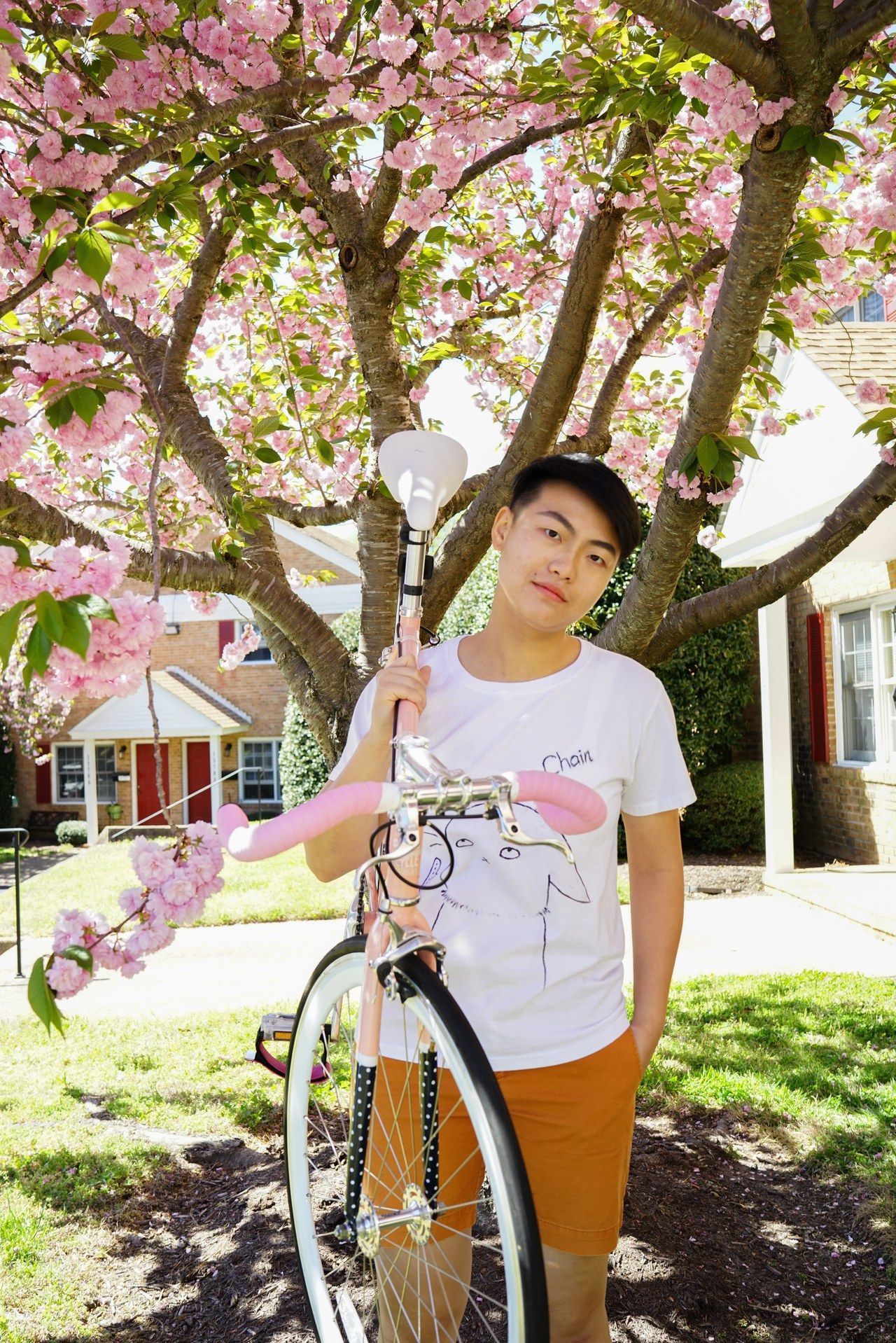
Chain Wang, 21
Recent graduate of the College of William & Mary, Williamsburg, Virginia; bachelor’s degree in psychology and philosophy
I noticed my sexuality pretty early, like when I was five or six. First I realized that I didn’t want to be confined by “girl” or “female.” Then I realized that I got really shy in front of girls. So I figured, Probably I like them.
I kept all of that to myself until I went to college. I didn’t want to tell my parents because I figured they’d be pretty shocked and strongly disagree with all of my decisions. And I knew [Beijing], China, wasn’t going to work for my sexuality. So I decided on William & Mary because I knew the undergraduate program was pretty famous.
I met my partner at the library during finals week. We had a one-night thing. Then we had another one-night thing. And then we had another one-night thing. It’s just kind of happened. Now it’s been one year and three months. She’s really sweet. She makes me feel really good. Her mom was really open and accepting when she found out about us.
“Even though I want to be a male in the future, I don’t wantto deny my 20-year history of being a female. That’s whyI decided to just be gender nonbinary.”
I came out to my mom between my sophomore and senior years (I finished my undergrad degree in three years instead of four, so I didn’t have a junior year). She was visiting me over the summer, and the conversation just kind of happened. She cried. But the first thing she said was “It’s OK, we know homosexuality is not a crime or a disease.” Then she told my dad. They are the kind of couple who hold hands when they are on their lunch break from work, so they don’t keep secrets from each other.
When I started college, I knew I wasn’t just a girl. Still, I wouldn’t have imagined changing that part of myself. But throughout college, I kept thinking about it. And this summer, I decided that I’m going to start taking testosterone. I want for you to see a straight heterosexual male when you look at me. But even though I want to be a male in the future, I don’t want to deny my 20-year history of being a female. So that’s why I decided to just be gender non-binary.— as told to Ashley Edwards Walker
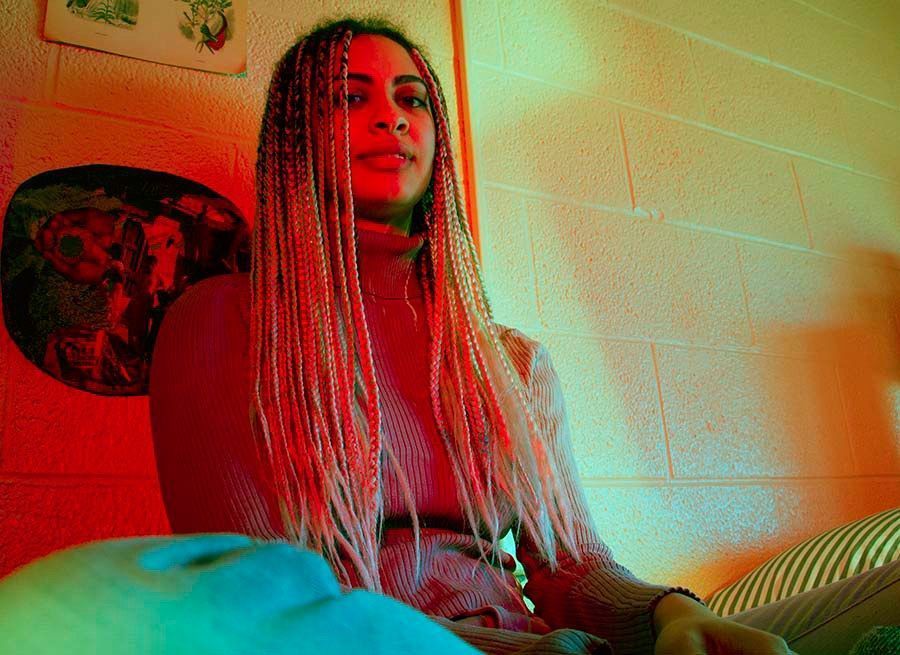
Niazayre Bates, 19
Sophomore at Ithaca College, Ithaca, New York; theatrical production art major
I’m from Los Angeles, and upstate New York is so different. I saw snow for the first time here. I stand out in Ithaca like a sore thumb being a black woman with long white braids. I was in a grocery store once, and a woman came up to me all excited and said that her husband had seen me around campus. L.A. culture and upstate N.Y. culture are entirely different beasts; I end up feeling slightly out of place because I can’t be that same person I was back home—which is also a good thing.
As I woman I definitely feel afraid to ask for help. For me, asking for help is admitting weakness—that I can’t do what everyone else can do on their own, and a sense that I’m taking up my professor’s time. Both reasons are completely ridiculous. I want to show other young women that I struggle, and that asking for help from teachers, classmates, and older students is normal.— as told to Samantha Leach
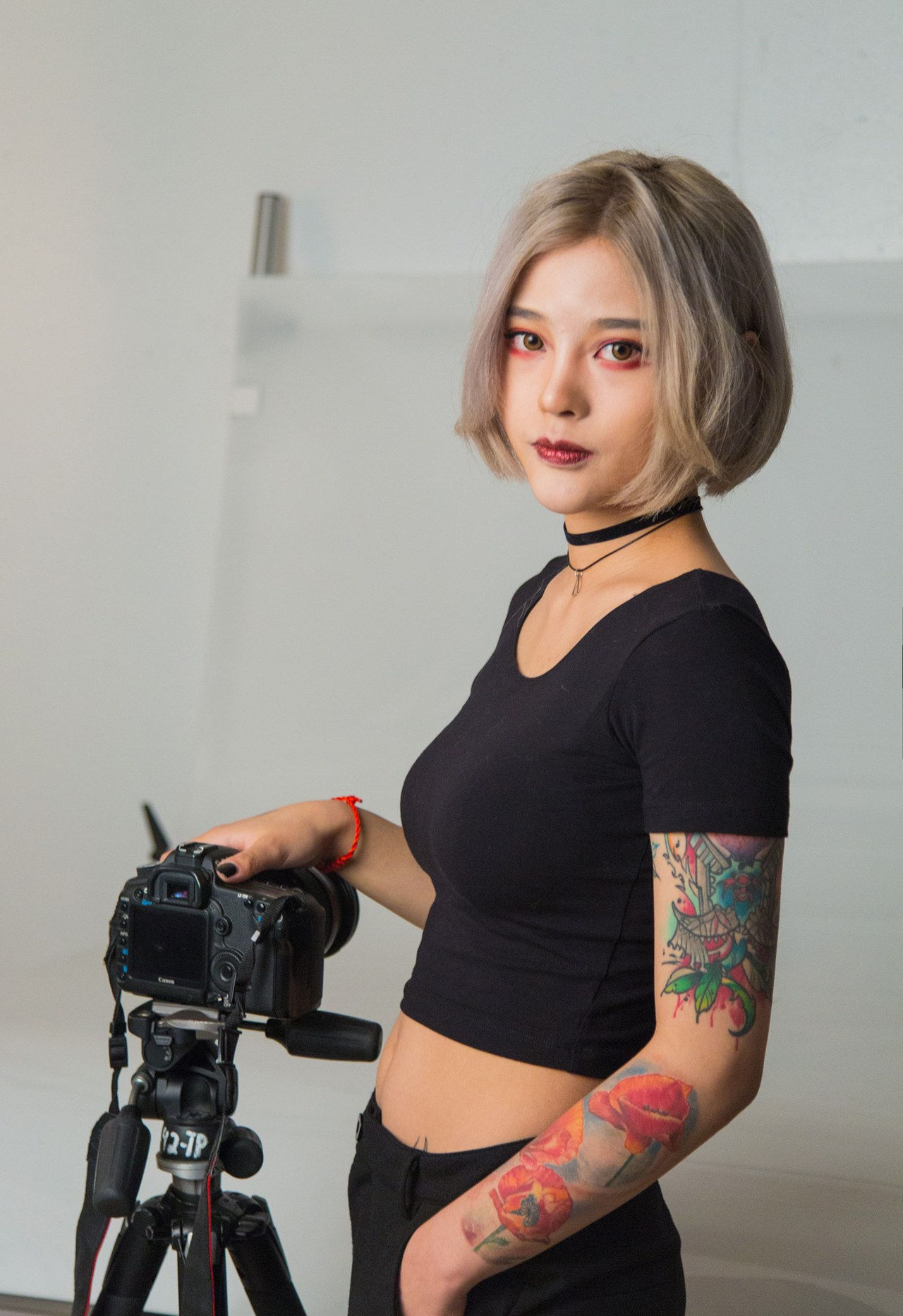
Cici Pan, 21
Senior at The School of the Art Institute of Chicago; photography major
College has made me more confident and hardworking. I was kind of lazy at the beginning of college, skipping classes and failing them. It was the first time I felt like a grown-up, so I was doing what I wanted instead of what I was supposed to do. At one point my counselor suggested I should maybe take a break. She was like, “We’re not here to push you to do stuff. You really have to want it and do the work.” I had to write an appeal to a council to prove I could make my classes.— as told to Ashley Edwards Walker
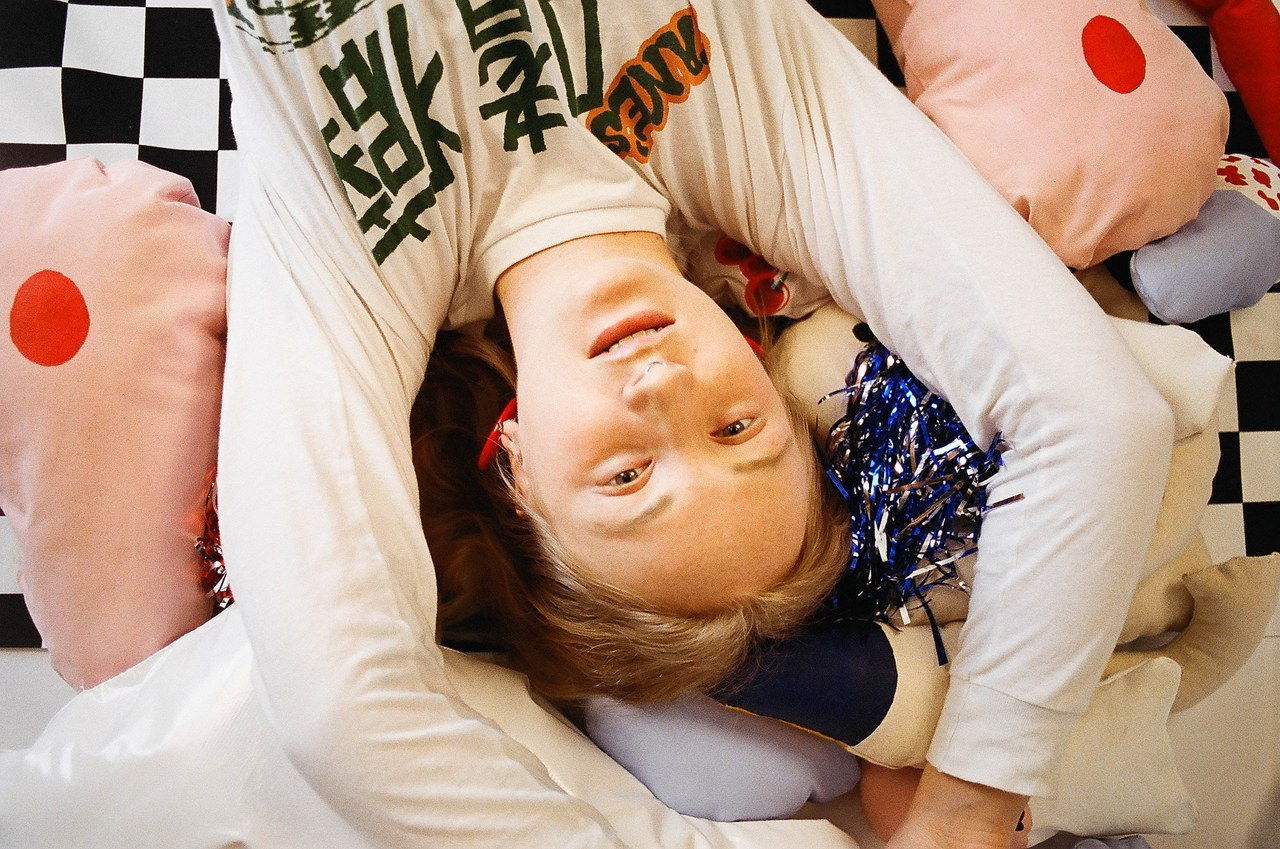
Ellie Gordon, 22
Fifth-year undergraduate at Oregon College of Art and Craft, Portland, Oregon; BFA in ceramics, working in mixed-material sculpture
In high school I felt like an outsider. I was afraid of being myself and speaking my mind. I wish I could go back and say, “It doesn’t matter! No one is going to stop talking to you because you’re gay! And it’s OK to talk about your feelings and to share what you think!” I feel like I’ve kind of come into my own, and in my art too. I still have a lot of growing up to do, though. I still make a lot of mistakes, I still get in fights with my girlfriend, I still say stupid shit I wish I could take back, but I’m a lot truer to myself now.
As a woman in college I feel a little misrepresented—even at my small art school, most of the professors and heads of departments are white males. It’s changing—our drawing and painting department head is a woman. I want to be a college professor one day. I want to hold a classroom, I want to teach theories and concepts. People think college is an equal opportunity for men and women—you’re both getting educated. Yes, you’re both getting an education, but there’s still so much male energy at the top.
[To any incoming freshman:] Don’t let anyone assign the feminine gender to your art; just because you’re a woman does not mean you need to make work about being a woman—that is not every piece of who you are. Make sure you stand your ground and have a voice, and don’t let men interrupt you. I used to let men mansplain all over me, but in the past year or two I’ve tried saying, “Hey, you just interrupted me, and I’m going to finish my thought and then you can say your thought.” Women are very underrated in the art world—the ratio of men to women artists in museums is just not fair. We women have to stand our ground because people will put you down for reasons that have nothing to do with your art, and everything to do with your gender.— as told to Jessica Militare
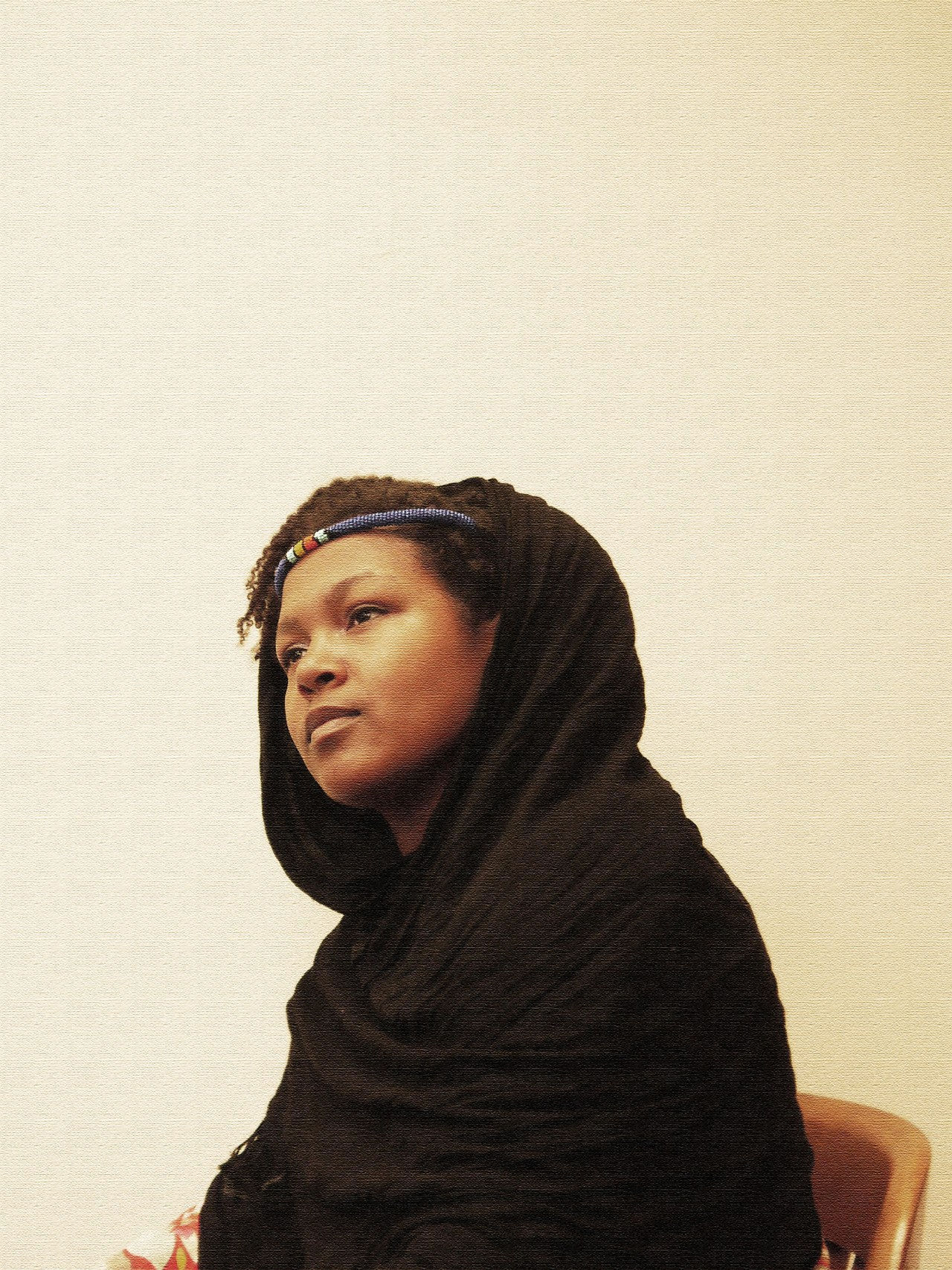
Hannah M. Clark, 22
Fifth-year senior at Howard University, Washington, D.C.; computer science major
Every woman wants something different out of life. […] When somebody makes a decision that is different from mine, that doesn’t take away my choice or make what I believe any less relevant. […] Also, it’s important to realize that college is just college. It’s a place you go to equip yourself with a skill set, but it’s not forever. Once those four years end, the rest of the world will be waiting at your doorstep. That’s why it’s important to always have your eye on whatever your goal for coming to college was. It saddens me when I hear older people say that college was the best four years of their life because it’s like, Well, you have at least 50 years ahead of you! I think it’s always good to think about things in the context of a lifetime.— as told to Ashley Edwards Walker
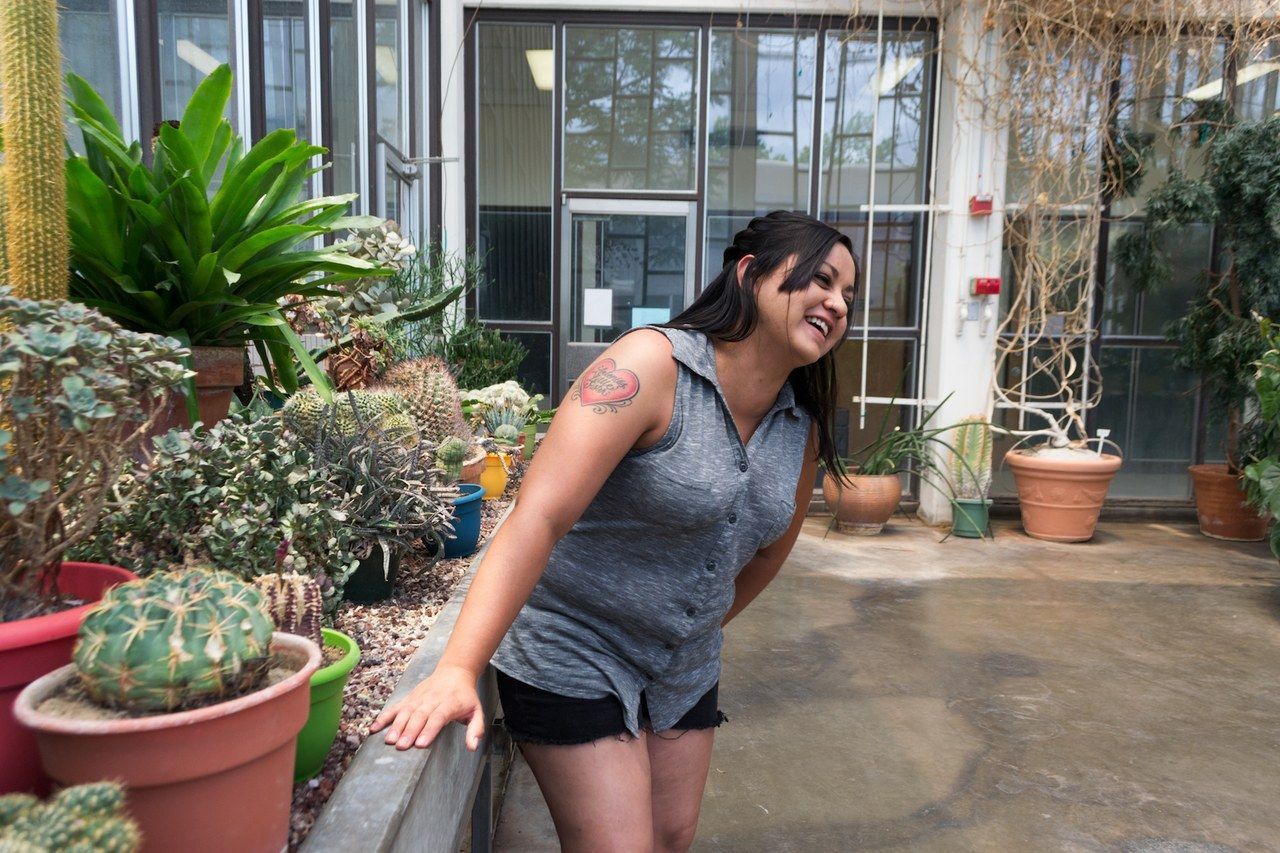
Amanda Romero, 31
Senior at the University of New Mexico, Albuquerque; fine arts major with a concentration in photography
I was a college dropout twice. First I went to community college, but I was only going to school part-time since I also had a full-time job. I had one more class—a physics class—before I could officially enroll in the sonography program. I’m horrible with math, and I ended up failing it a couple times. On the third go-round, I found out I was pregnant. I was 23 and I wasn’t married. That’s when I dropped out the first time.
A year after my daughter was born, I decided to go back to school. I changed my major to art so that I could focus on photography—something I’d always loved to do in high school. I completed my associate’s degree and decided to go for my bachelor’s, enrolling at the University of New Mexico that fall. But in November of that first semester, my brother, my only sibling, committed suicide. I’d always been extremely close with him, and his death devastated me. I tried to convince myself to push through and just finish out the term, but I couldn’t. That’s when I dropped out for the second time.
When I re-enrolled a year later, I was still reeling from my brother’s death. But luckily I had an amazing teacher in one of my photography classes who I could talk to. She convinced me to channel my grief into my art, and for that I will forever be grateful.
Now, if everything goes according to plan, I’ll graduate in May 2018. When I see freshmen and sophomores in my classes talking about football games and all the fun stuff that I wish I had done when I was their age, sometimes I feel sad or as if I’m behind. But no matter what, I keep going. There’s always going to be bumps in the road. But there’s also always going to be a way that you can navigate through them and get it done. Even though it’s taken me this long, and even though it’s hard sometimes, I’m still doing it.— as told to Ashley Edwards Walker
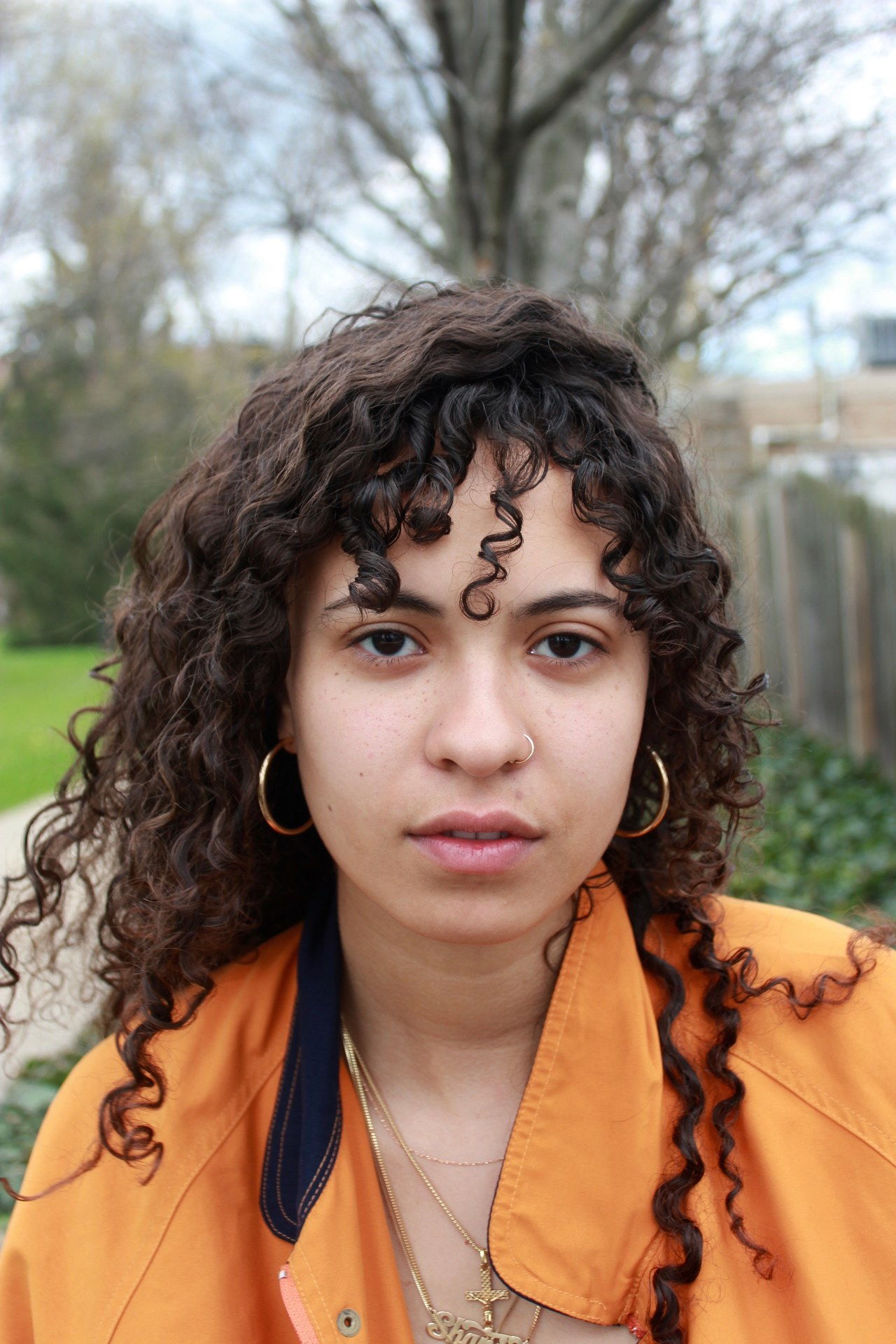
Shani Strand, 22
Recent graduate of Oberlin College, Oberlin, Ohio; double major in studio art and English
I think the majority of students of color, especially black students, have felt unsafe on campus. Oberlin gets racial threats—specifically toward its black student population, but also its student-of-color population—almost every year. It can be a very tense place in terms of where it is in Ohio and how politically liberal the school is. One year the black student union put out a list of demands that got a lot of public heat and people started threatening the black student population. The POC community is just really small there. Supportive, but small. So you’re aware that you’re in an incredibly limiting environment in the way that you can participate in black culture. And the isolation that you feel from the black communities you come from, or that you would like to participate in, can get really frustrating.
I wanted to leave at the end of my sophomore year. I think a lot of it was stuff that was happening at home with my parents and their relationship. It was an interracial marriage; my mom is from Jamaica and my dad is white and from Long Island. I think they were doing that thing where they stay together for the kids, but the kids kind of know that they shouldn’t. They decided to get divorced after I left for college. Also, my dad is a transgender woman and she was transitioning. So I was very overwhelmed with things in terms of gender, sexuality, politics, racial politics. It was hard being 400 miles away and getting phone calls from each of my parents every day. But even though it was really hard at Oberlin sometimes, I’m still pretty happy with the experience I had overall.— as told to Ashley Edwards Walker
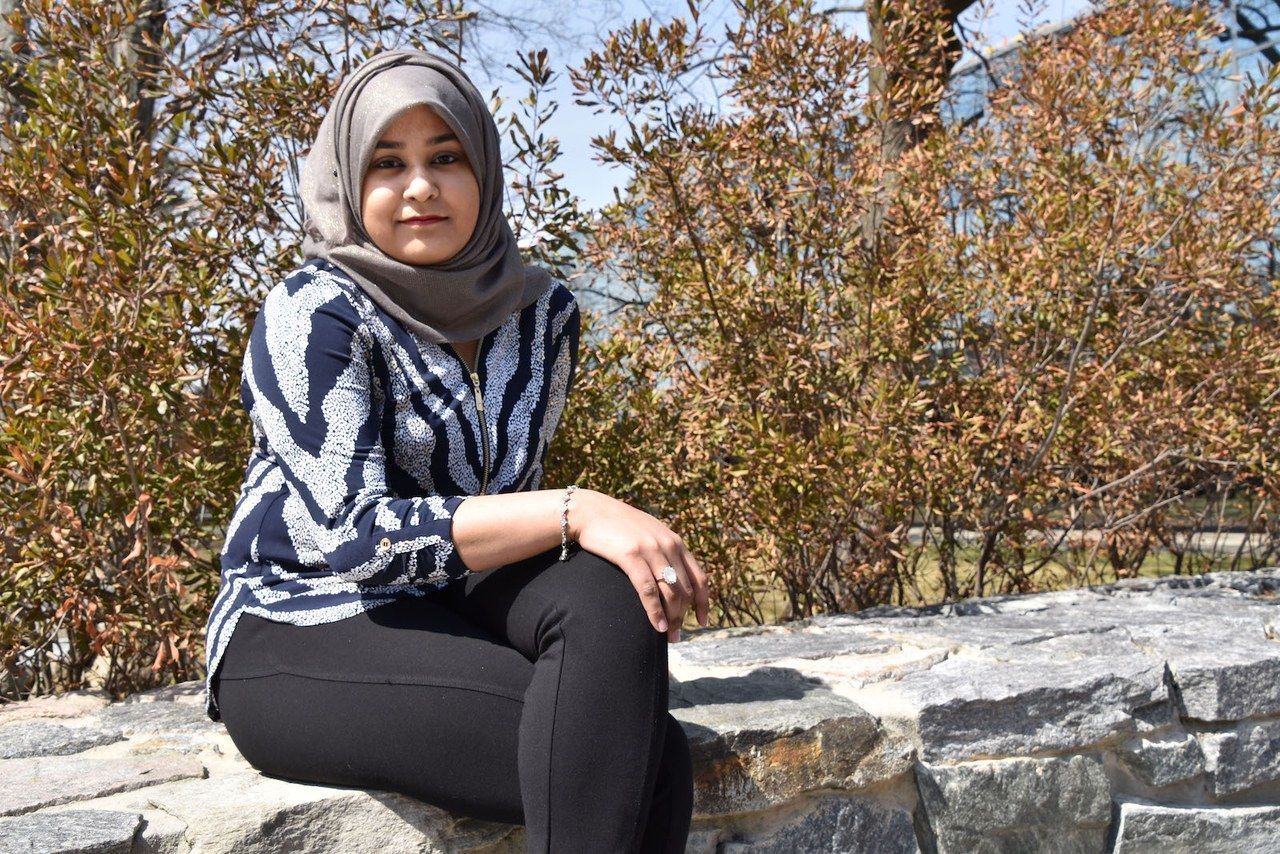
Mehnaz Ladha, 21
Senior at Ramapo College, Mahwah, New Jersey; communication arts major
My great-grandparents migrated from the province of Gujarat in India to East Africa. Both of my parents were born and raised in East Africa and migrated to the United States. Throughout high school [in New Jersey], I stood out as a Muslim American wearing a hijab, and the headscarf essentially defined me. But that changed when I started college; the hijab was no longer a marker of what I am, but rather who I am. Covering for me has become a symbol of modesty, beauty, and empowerment.
“Throughout high school, the headscarf essentially defined me.
But that changed when I started college; the hijab was no longer
a marker of what I am, but rather who I am.”
My safety on campus became more apparent after the recent presidential election. I found myself being extra cautious of what I’d say around others—especially after hearing anti-Muslim rhetoric from public figures. But their comments also motivated me to prove others wrong and show them what being a Muslim really means. Friends and faculty at school have reached out to see how I’ve been doing, and the support has reassured me that I am a member of the Ramapo community just as much as anyone else.
Young Muslim women in college are ordinary girls working hard to make a name for themselves. Much like everyone else, they want to earn a degree, find a secure job, and lead a happy life. Being Muslim is just another facet of my identity that not only defines what I believe in but also shapes my character.— as told to Jessica Militare
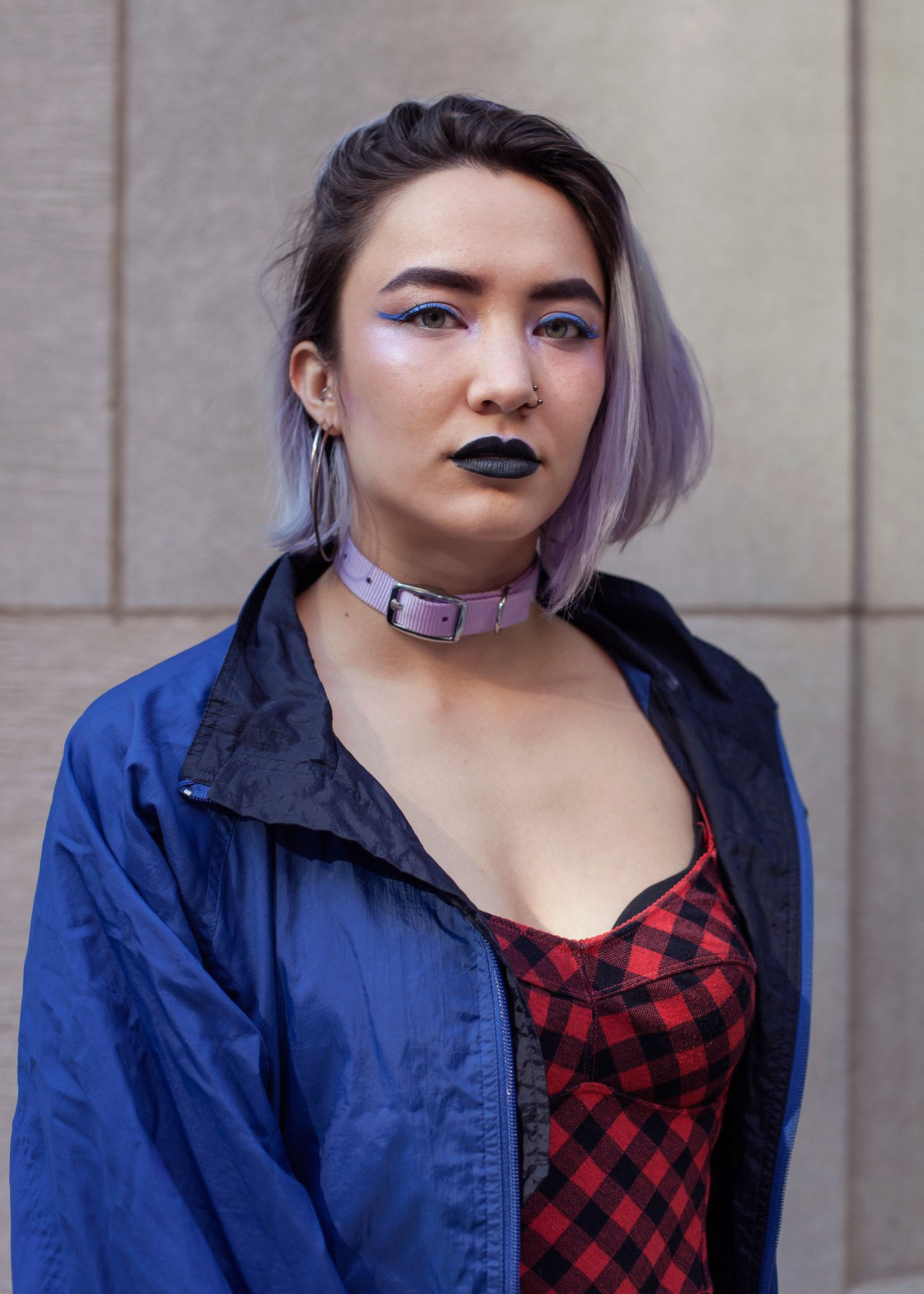
Samantha J. Lozada, 22
Recent graduate of New York University; specialized study on critical theory regarding race, gender, and colonialism
[My hometown of] Concord, Massachusetts, is a small town. Well, I mean, not too small, but it’s the suburbs of Boston. Growing up, I didn’t feel that much connection with the place; it’s pretty conservative socially […] I came into myself [at NYU].
I think that currently in the U.S. there’s an idea that—well, this is a very anti-progressive thing—but that school is a place where people learn social-justice-oriented or reactionary ideologies, rather than coming into their own understanding. Like the the idea that they went to school and became a radical feminist because they were brainwashed by this or that, or they became more anti-capitalist because of this or that. These things invalidate progressive ideologies, especially with people going to college. It’s not really what they think or feel—it’s what we can understand from the news, it’s people telling them instead of thinking for themselves.— as told to Samantha Leach
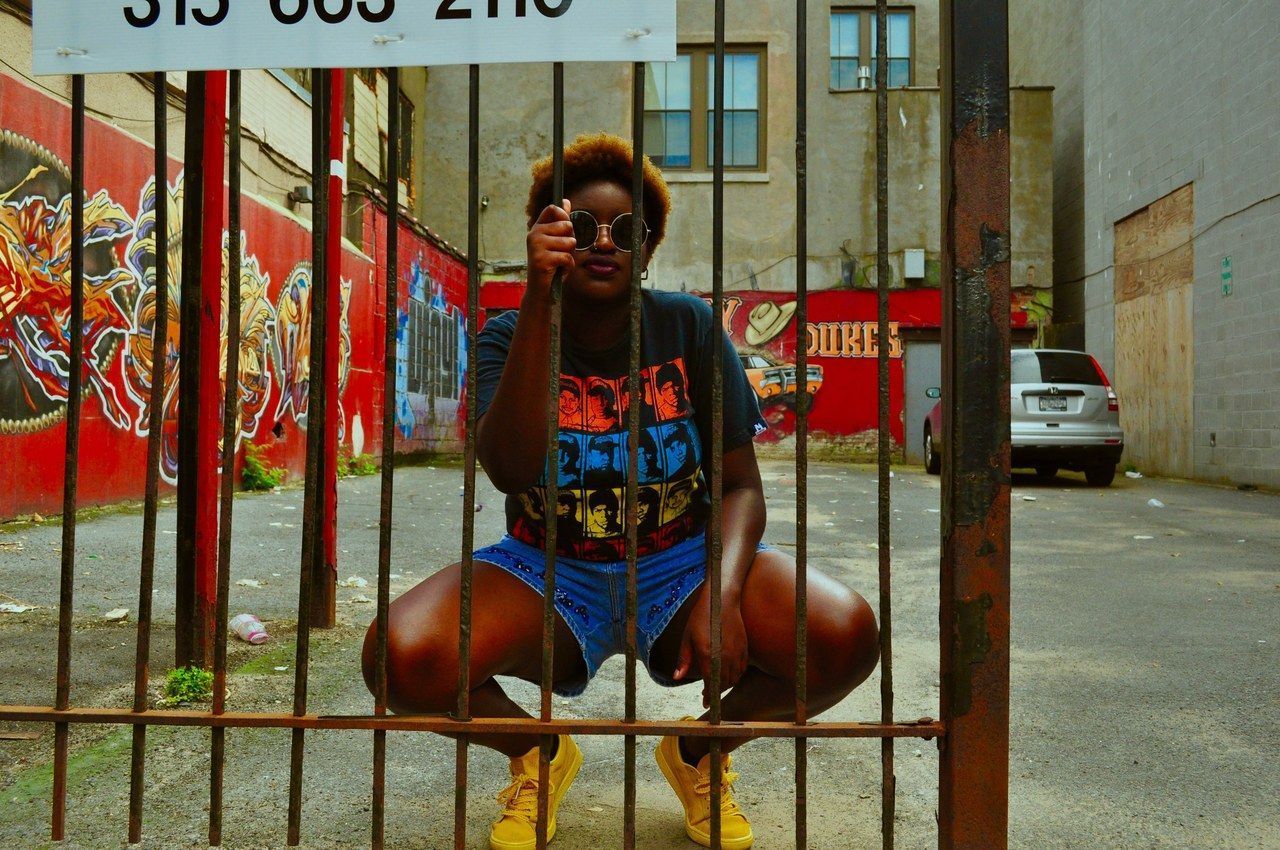
Nicole Jenkins, 18
Sophomore at Syracuse University, Syracuse, New York; English major
One thing I wish I’d known before starting college is that people are coming from all different types of backgrounds. I definitely did not realize that at first and took offense to some things. It took a while, but one day I realized like, OK, this person is from Colorado. I don’t know how they were raised. So maybe they just don’t know the same things that I know.
People think our generation is on our phones all the time, just trying to socialize, using Snapchat too much, whatever. But really we’re using these things to help us fulfill our goals. Like people will post their artwork to social media saying, “I have an art gallery setup at this time, come through.” And definitely with protests and demonstrations and stuff like that, we use Snapchat, Instagram, Twitter, all that stuff, to bring people together and build a community. So I think it’s really useful and that we’re using it the right way to further our goals.— As told to Ashley Edwards Walker
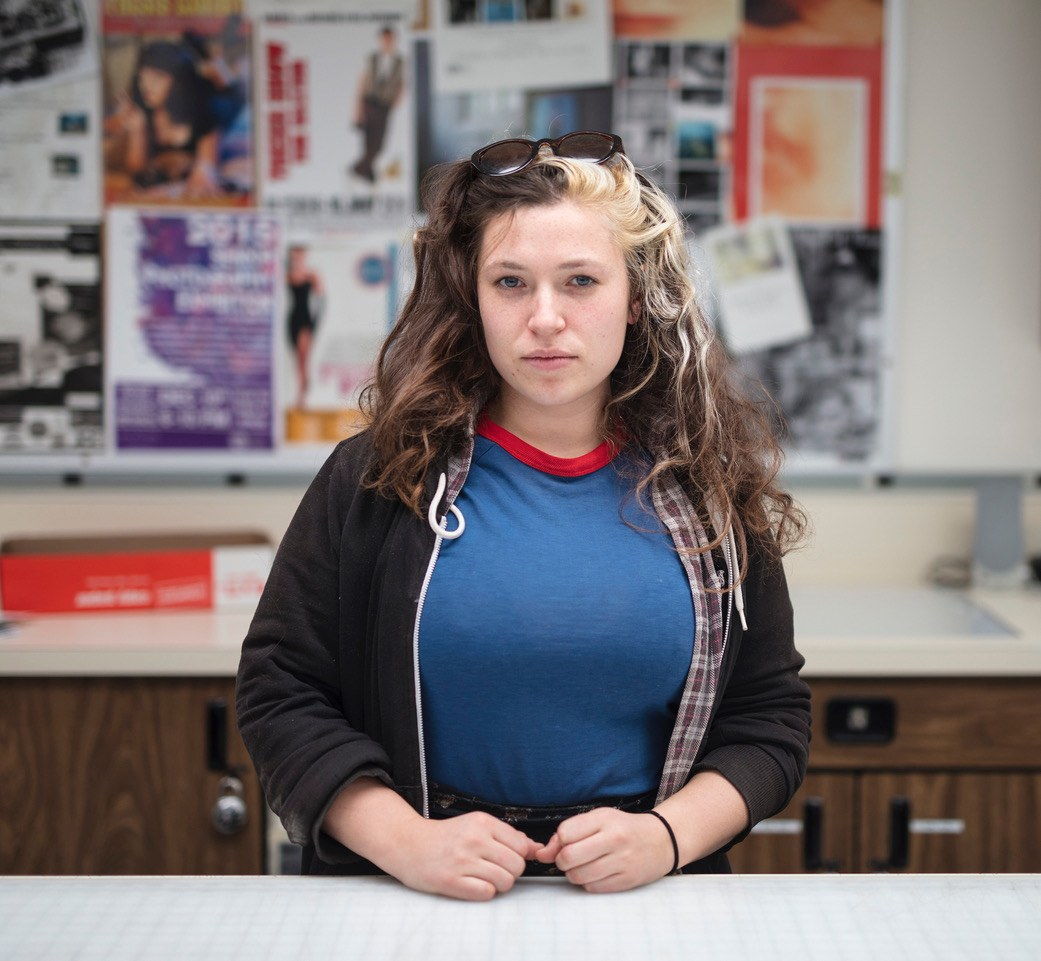
Clara Deweese, 24
Senior at Montana State University, Bozeman; photography major
I grew up in Portland, Oregon, so moving to Montana was like a 180 in a lot of ways. Portland is really socially progressive. It was super easy to be who you wanted to be and express yourself however you wanted to. It was big to be part of a scene, but you didn’t necessarily have to choose just one. Like, I was a punk, then I came out as queer when I was 14. So I had both of those communities, which was a ton of fun and allowed me to explore in a lot of different ways. To be immersed in the alternative here in Montana is wild.
Montana is very rural. People do sports, fish, ski, rock-climb, mountain-bike. It’s pretty dominated by intense masculinity and is fairly conformist in terms of how people think women should look. When I first I came to Montana, I was definitely like, “I’m an urbanite. I’m so much more cultured than everyone.” […] Living in Montana has taught me to dig deeper than the surface level with people. And I’ve learned that I’m not that special. Everyone is human.
A big thing that’s empowering about being in a small place is that your voice can be much louder. In my work, I focus on femininity and gender dynamics. In Portland, all my ideas, it was like preaching to the choir. People are already so radical that nothing really shocked anyone. But in Montana, I’m presenting work to a community of people who haven’t seen something like what I’m doing in a contemporary context, possibly ever. Even if people are totally offended it’s like, “OK, cool. I’m glad you saw something that made you somewhat uncomfortable because you live in a place that is so comfortable.”— as told to Ashley Edwards Walker
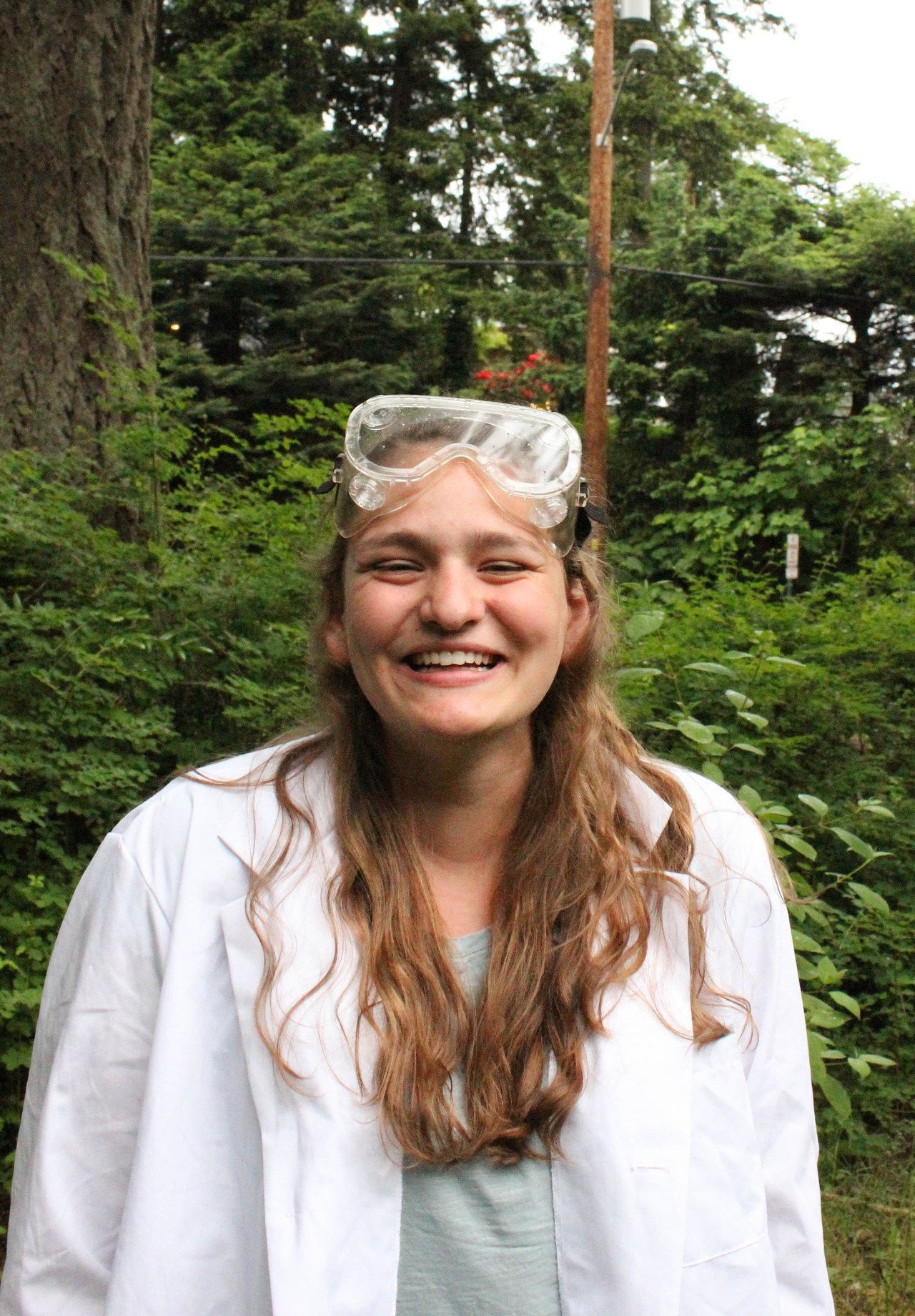
Chloe Bristow, 19
Sophomore at Western Washington University, Bellingham; double major in cellular molecular biology and psychology
When you’re in high school, it’s hard to know if you’re truly self-motivated. Because you have parents and the high school community who are there to make sure you do what you need to do. But in college, all of that falls away. You realize it really is on you to find out if you’re at school because you want to be there.
When I first got to school, I was really overwhelmed with the fact that if I failed or didn’t do good, it was on me. But at the same time, when I did succeed, it was empowering to know that it was because I chose to.— as told to Ashley Edwards Walker
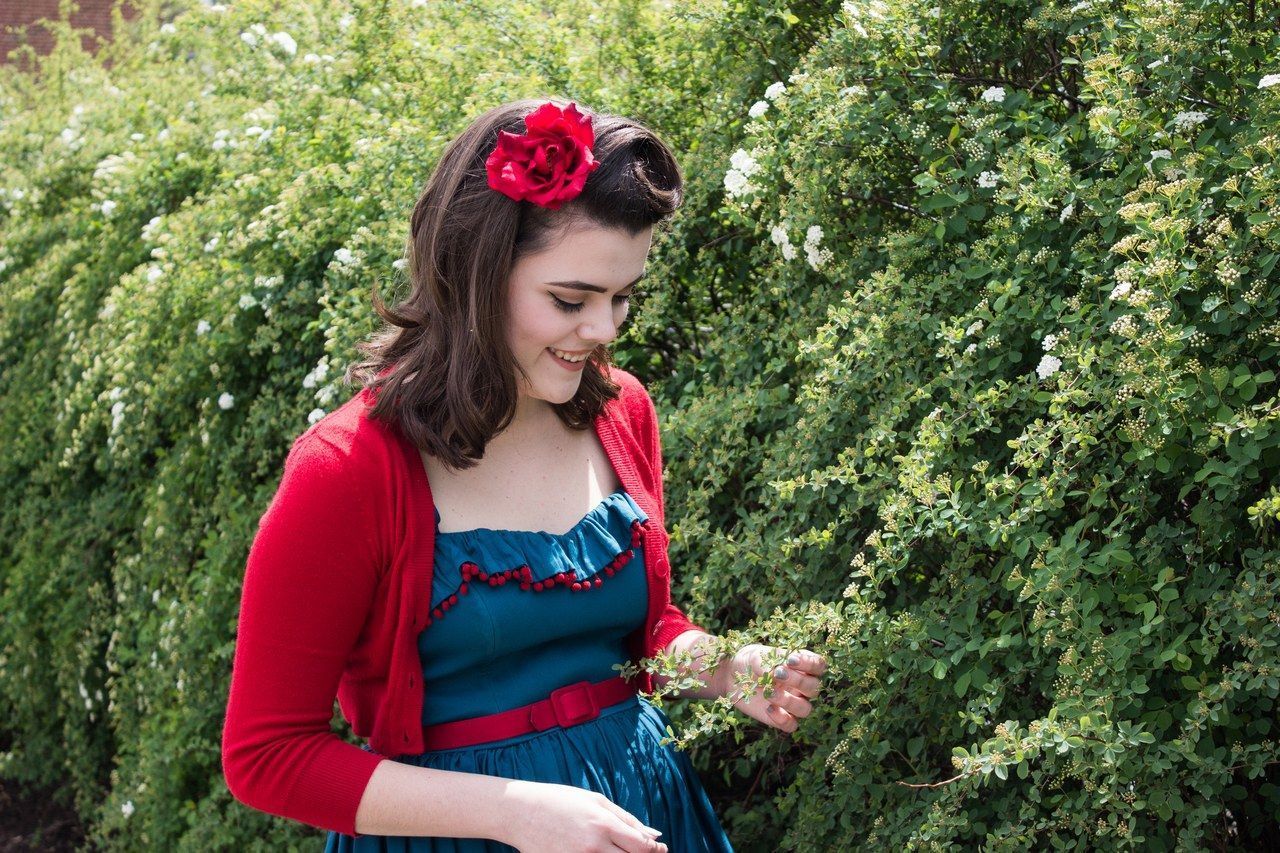
Taylor Carroll, 21
Junior at Virginia Tech, Blacksburg; creative technologies major
Virginia Tech is near my hometown, so I actually still live in the house I grew up in. I know I’m not getting the same experience as other students—living at home can be limiting and isolating—but I’m saving a lot of money on rent, so that’s an upside.
I feel pretty safe on campus, even at night. My aunt is in law enforcement and was a first responder on the shooting here in 2007—she’s shown me how the security on campus has tripled and that they have all kinds of safety protocols in place. Even ten years later, the tragedy has definitely made Virginia Tech very community driven. You can’t even go two feet on campus without seeing a “We will prevail” sign because it’s true—we made it through a very difficult time and still managed to come out of the other side with love and trust.— as told to Kate Friedman
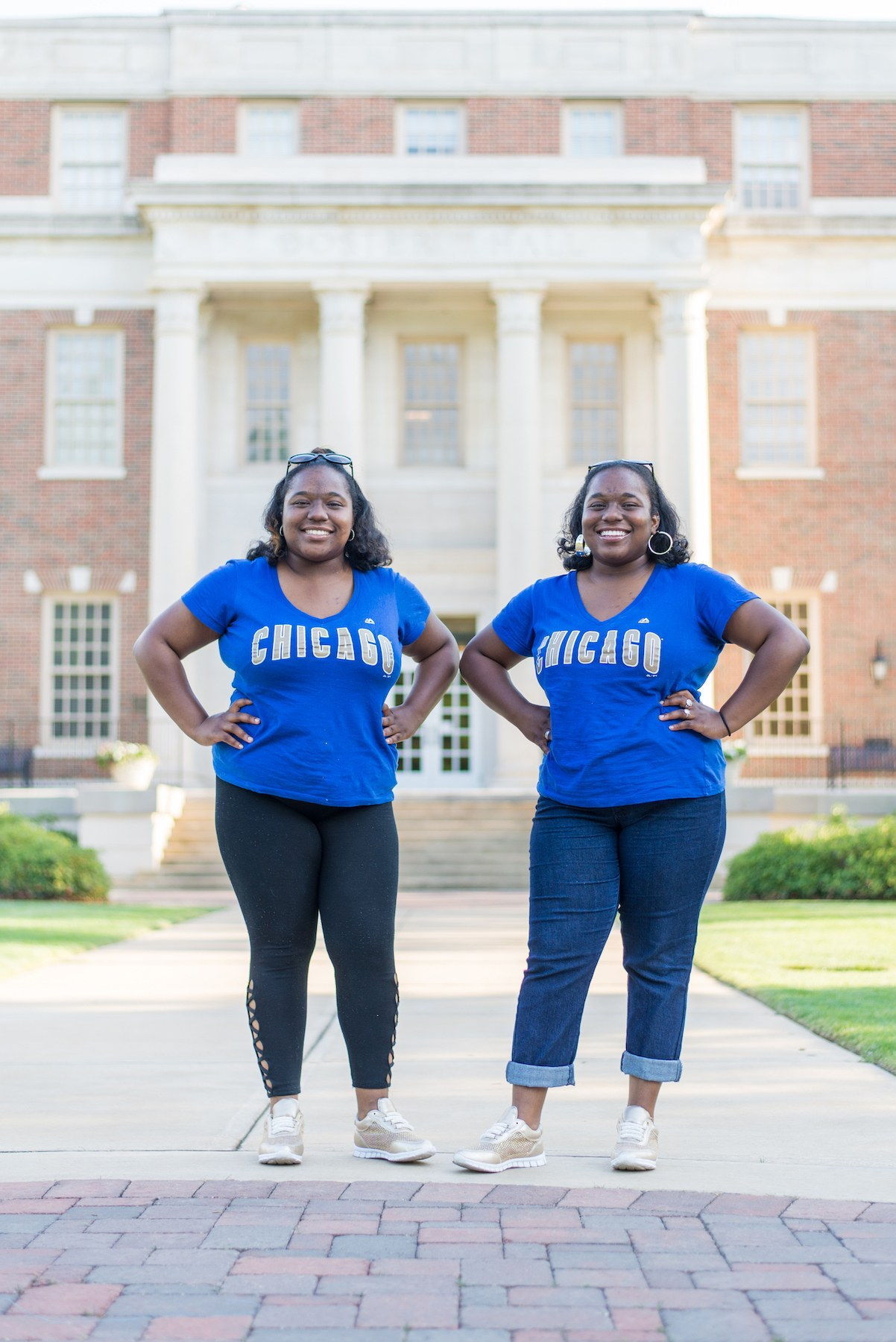
Casi and Ari Gibson, 22
Recent graduates of the University of Alabama, Tuscaloosa; Casi majored in restaurant, hotel, and meetings management, and in early childhood development; Ari majored in restaurant, hotel, and ,eetings management, and in marketing
Casi: Tuscaloosa is really confined and very different from the Chicago area [where we grew up]. The strong Southern values and principles were a bit of a culture shock for us. At UA, Greek life is huge; we didn’t join a sorority, but we involved ourselves in organizations we felt passionate about. I wish I would have known that in college, academics isn’t the only thing you should focus on. Your social life and experiences shape you and mold you. […] It’s not easy being a young women in college, or in the world really. There are so many different assumptions and things you have to prove about yourself, and as black women, we have to prove a lot more and work a lot harder.
Ari: You don’t have that core base of family and friends or your support system at home—so you’re in it by yourself. At school you have to find your little niche in your little corner of the world to be successful. I was lucky to have my twin sister with me.— as told to Kate Friedman
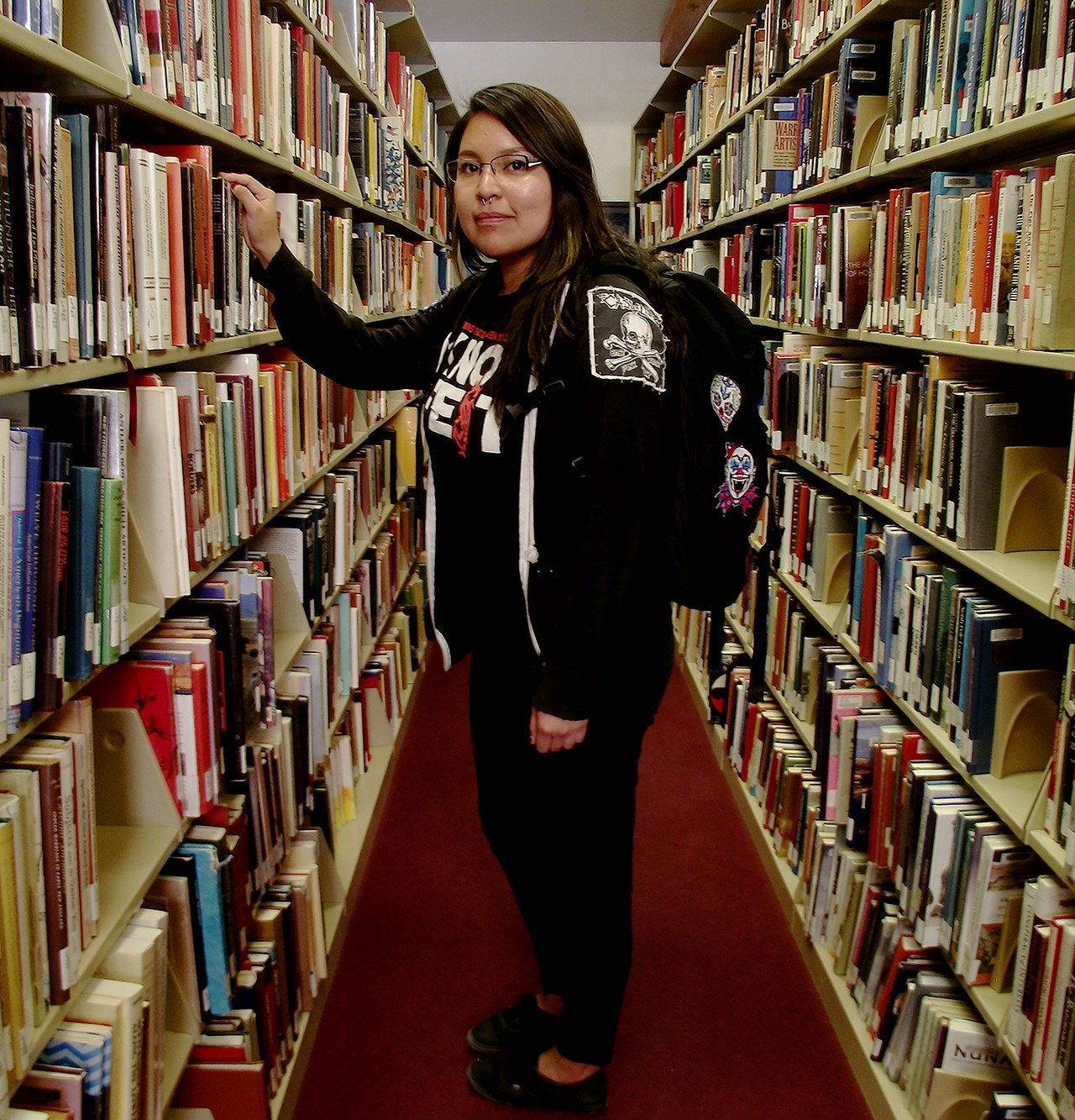
Candace Harrison, 20
Sophomore at Diné College, a tribal university; pursuing a fine arts degree
Before going to college, I didn’t know how many challenges the Navajo nation faced. In high school I wasn’t taught the Navajo language. Then, during my first semester, I took a Navajo history class. Our instructor explained how our language is part of our roots. So many people in my generation speak English that the Navajo language is going to disappear if we don’t change. So now I’m taking classes and trying to spend more time with my grandparents. When they talk to me in Navajo, instead of ignoring it or asking for help translating, I try to learn it.
“Before college, I didn’t know how many challenges the Navajo nation faced.I never really cared about my traditions. Then I took a class in Navajo history.Now I think of myself as an indigenous woman. It means you are strong.”
[…] I never really dressed in traditional outfits before college. But now that I’ve learned more about my culture, I’m a lot prouder. Every once in awhile I put on my traditional outfit: a dress or a skirt and velvet top, a sash belt, a concha belt, and you wear turquoise jewelry. Before, I never really cared about my traditions. Now I think of myself as an indigenous woman. That means knowing who I am, knowing my language and my homeland. It means you are strong.— as told to Ashley Edwards Walker
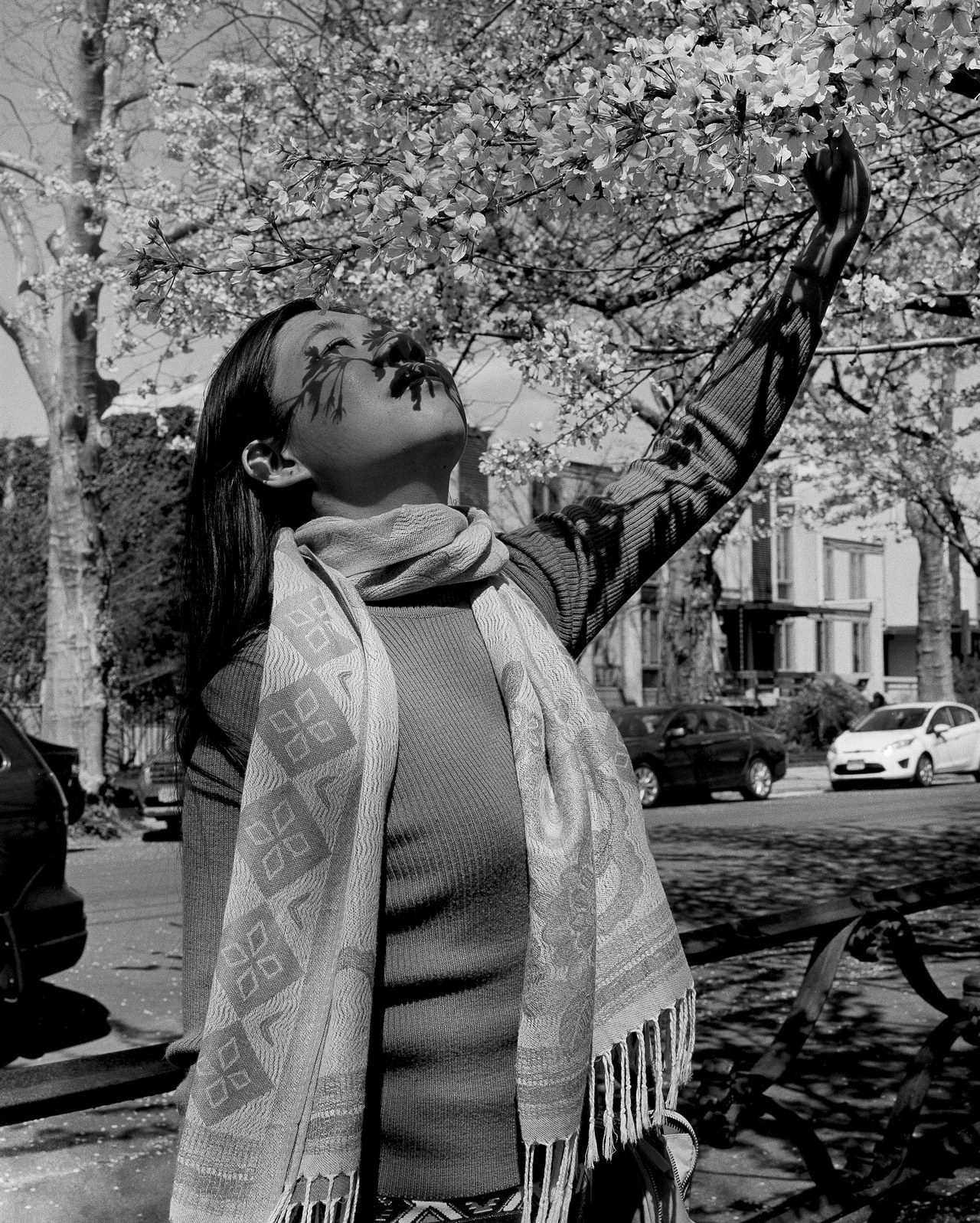
Stephanie Siow, 23
Recent graduate of Yale University; global affairs major
My worldview is different about so many things since going to college. […] One of my best friends grew up on a farm in Wisconsin. Before meeting her, I had no idea what a life like that would look like—talking about milk and beef prices, the Midwest culture, Culver’s, stuff like that. My roommate: She’s half Japanese, half African American. And she grew up in the most liberal part of California. You just have so many people coming together from such different backgrounds who all care about all different things. You’re forced to try and empathize.
People often have this idea of college women being very vocal and advocating for things like sustainability without actually getting things done. I think that’s really untrue. I have so many friends who contribute on campus and off. My roommate started an academy called Powerful Beyond Measure that brings at-risk youth girls from California to Kenya. One of my suite mates from my freshman year started the Organization for Racial and Ethnic Openness to promote conversations about racial issues on campus. I cofounded the Southeast Asian Movement to engage youths on Southeast Asian political and social issues. I could go on and on and on! College women are taking ownership of the stuff that they care about because they want to make a difference in this world.— as told to Ashley Edwards Walker
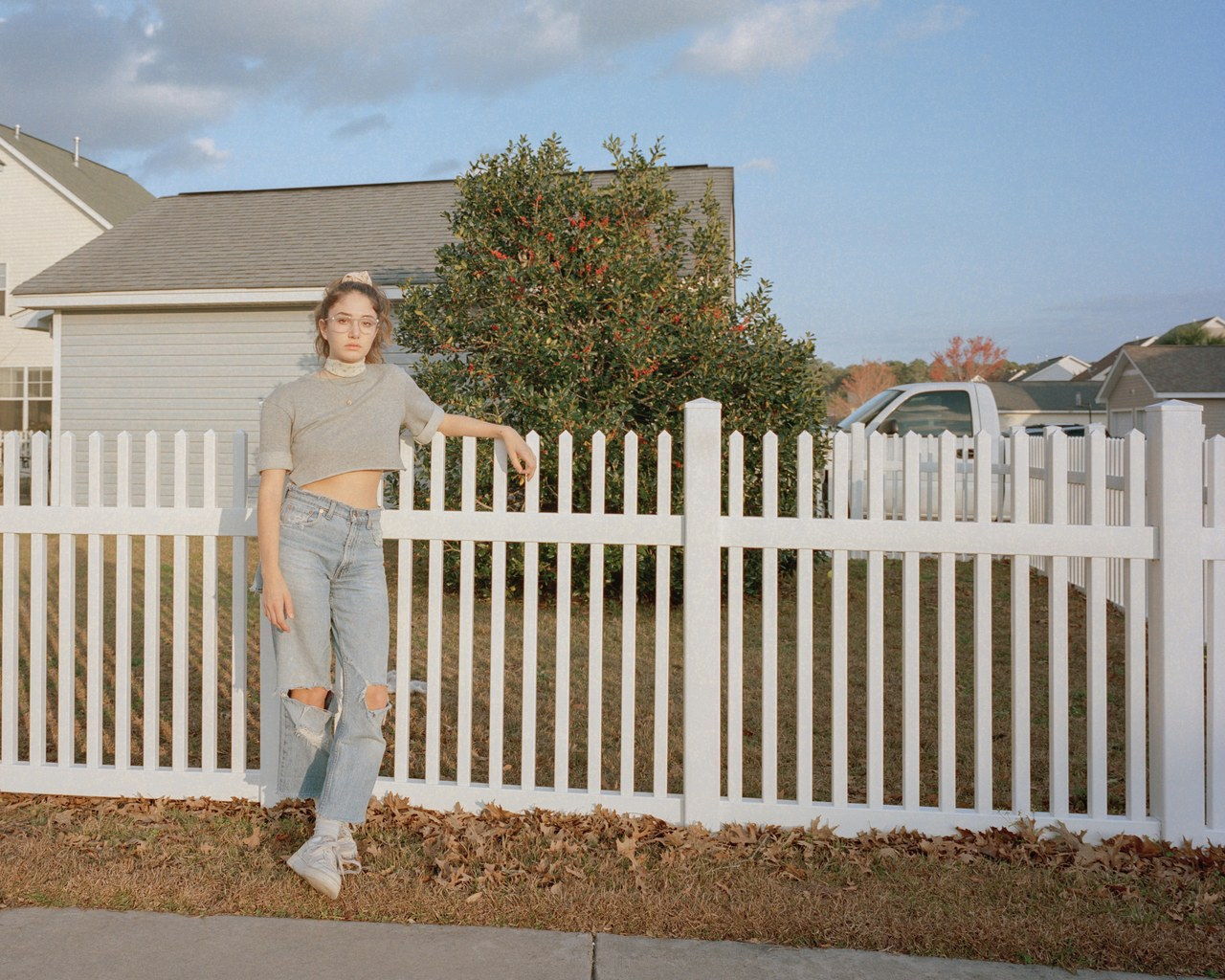
Jess Farran, 24
Recent graduate of Savannah College of Art and Design; bachelor’s degree in fine art and photography
The last few years have been hard for me—my dad left, and we had two deaths in our family. I think being so far away at school allowed me to deal with it independently. Sometimes I wished that I had a support system at that time, but I am thankful that I was the only person I was able to rely on. That time really shaped me into the person and woman I am now.
People assume women in creative fields are dumb. They think that’s all we can do, or all we feel like we’ve been made to do. Like, “Oh, of course a girl would go into fashion” or “Of course she wants to be interior design, because that’s what society made her to be.” But we have so much choice in what we do, and it should not be questioned or doubted. I didn’t pick a creative field because I thought it was easier for me—if anything I think it’s more challenging. Don’t doubt others based on societal norms, even if they fall into tropes. They still have a choice in what they do.— as told to Kate Friedman

Nina Falu, 19
Sophomore at Madison Area Technical College, Madison, Wisconsin; hopes to major in occupational therapy
Our generation of women in college, there’s more of a work mentality. We are all on this grind to get our degree and make sure that we’re financially set. The women in Madison are really independent; […] we’ve had influences like Nicki Minaj and Beyoncé saying, “Go to school, you don’t need a man.” So my friends and I have always been like, “I’m going to do this and no one’s going to stop me. I am a woman, and I am proud.”
Growing up as a black girl with really curly hair, I’ve always just been cast aside. There’s even times where people have said, “You’re so much smarter than I thought you were because you look this way.” For me, that’s motivation to keep going. I’m done with letting other people assume things about me because they don’t like the way my skin is or they think I’d look prettier if I was another way. It’s our turn now.— as told to Ashley Edwards Walker
With additional reporting by Samantha Leach

